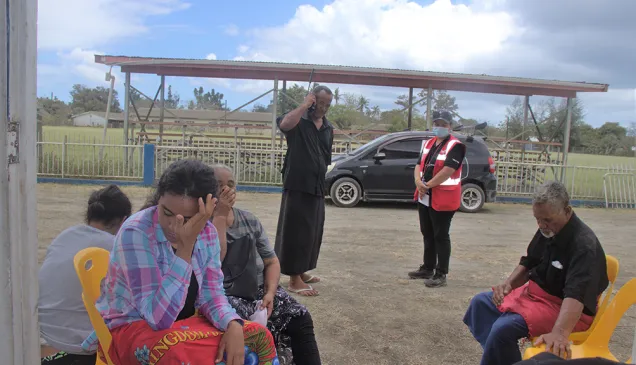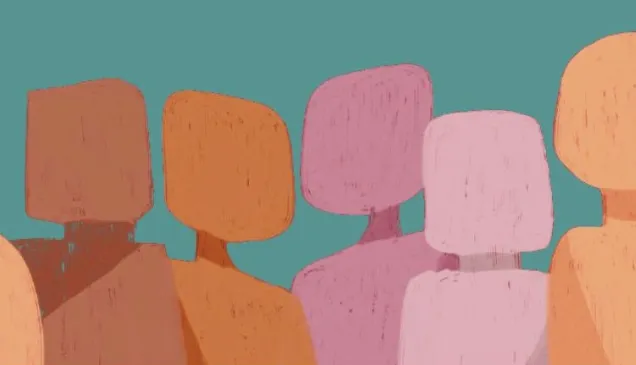His Excellency the President Major General (Ret’d) Jioji Konusi Konrote delivers his welcome address. “As a former UN peacekeeper, I can vouch that peacekeeping is a duty noble in service to humanity. We realise that repression, violence and war in various parts of the world is a reality and that we all have an obligation to ensure the safety and security of the most vulnerable in society, including women and children,” he told delegates. Fiji, as well as other Pacific island countries, contribute security force personnel to global peacekeeping operations.
Fiji: The Pacific Islands Roundtable on International Humanitarian Law
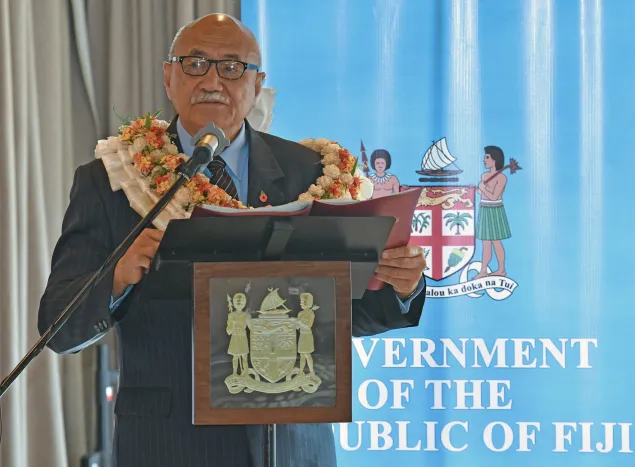
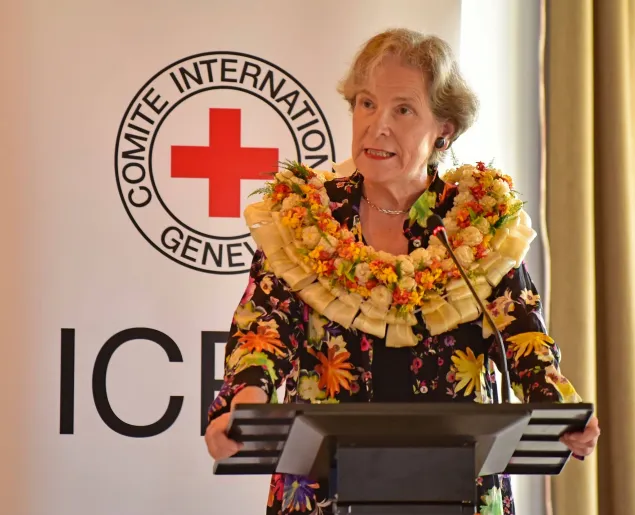
Christine Beerli, Vice President of the ICRC, flew to Fiji from Geneva to participate. “Natural disasters or environmental problems – which the Pacific region understands better than most – can have catastrophic and far-reaching results, all the more so when they converge with socio-economic problems or conflict. There are strong arguments that climate change will reduce available food and water resources, increase migration, raise tensions and probably trigger new conflicts.”
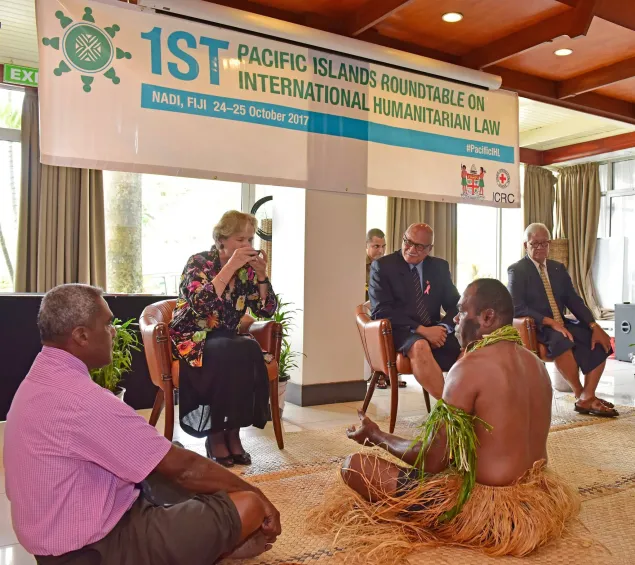
Ms Beerli drinks a bowl of kava as part of a traditional Fijian welcome ceremony. As the guest of honour, she was also presented with a whale’s tooth by the Fijian government.

Delegates listen to welcome addresses at the opening of the event. Representatives from Cook Islands, Federated States of Micronesia, Fiji, Kiribati, Nauru, Palau, Papua New Guinea, Republic of Marshall Islands, Samoa, Solomon Islands, Tonga and Vanuatu participated, while Australia, New Zealand, Switzerland and various regional organisations were also in attendance.
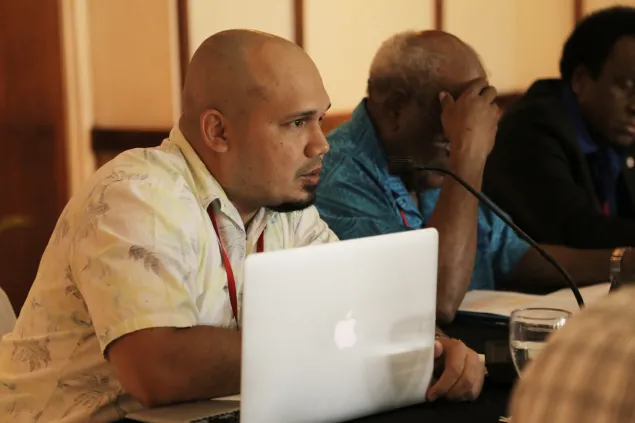
Bernard Adiniwin, legal advisor to the President’s Cabinet for the Republic of the Marshall Islands. “We learn about American history in school – World War Two, the Holocaust. There have to be rules to everything. If we are to send our sons and daughters, brothers and sisters to join the US military then they have to live up to the standards, as well as be protected by those standards.”
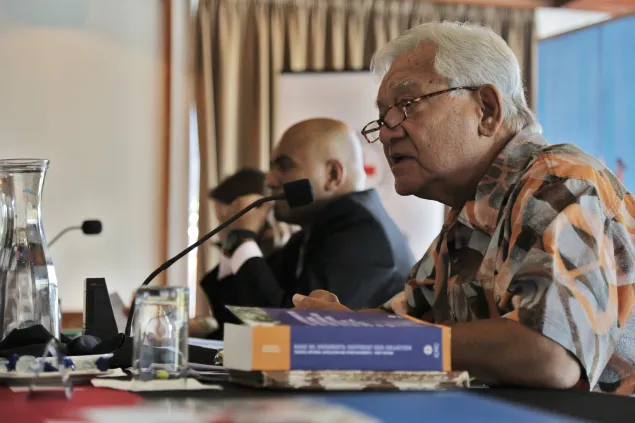
Tuiloma Neroni Slade, former International Criminal Court judge and Pacific Islands Forum Secretariat Secretary General, addressing the Roundtable. In his keynote address, he reminded participants: “In a highly connected and changing world, we are not isolated and cannot remain isolated.”
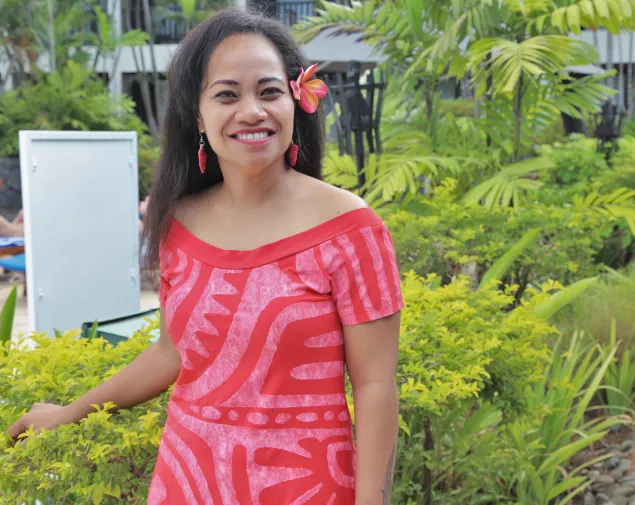
Fine Tu’itupou, Secretary General of the Cook Islands Red Cross Society. “It’s about preparedness. What if we have a conflict? World War Two came to us. The Pacific is strategically placed for superpowers. If there’s another world war it will definitely come to the Pacific. This is about preparing your country, your people, to be aware of their protection, and also to be aware of state and non-state actors’ obligations.”
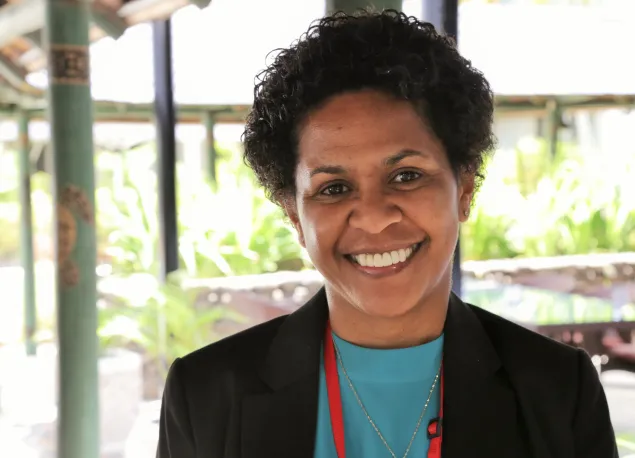
Jena Kuliniasi, Deputy State Solicitor with the Department of Justice and Attorney General of Papua New Guinea. “With nuclear testing being done in Pacific waters, Papua New Guinea cannot afford to be complacent about it. IHL and meetings like the Roundtable are good to help address such humanitarian issues. And what better time to do it than during a time of peace.”
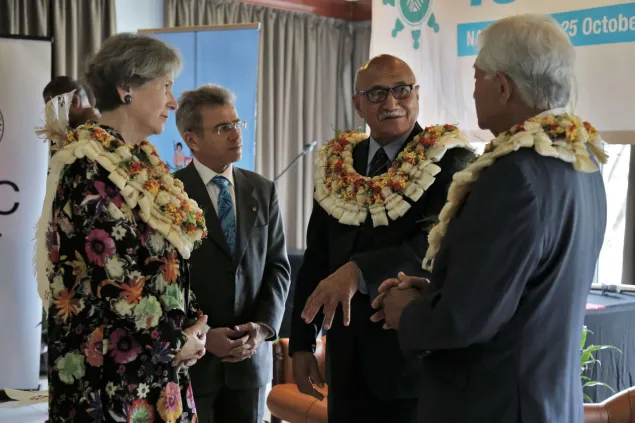
From left: ICRC Vice President Christine Beerli, ICRC Head of Regional Delegation in the Pacific Fred Grimm, His Excellency the President Major General (Ret’d) Jioji Konusi Konrote of Fiji and Tuiloma Neroni Slade.
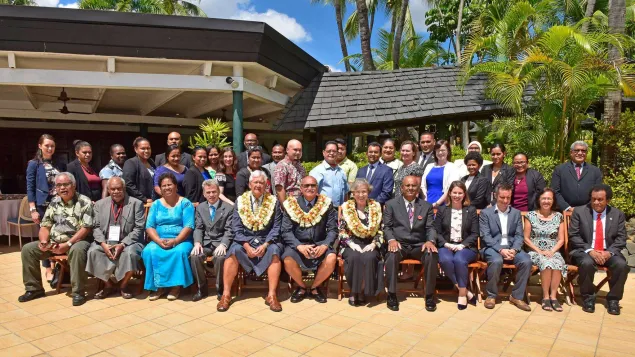
All participants pose together with His Excellency the President Major General (Ret’d) Jioji Konusi Konrote.
The Pacific is today one of the world's most peaceful populated regions. The Second World War, and even the civil conflicts in the Solomon Islands and Bougainville, seem long gone. For many, this vast oceanic region, home to many of the world's smallest nations, evokes palm fronds, coral reefs and pristine white-sand beaches. On the ocean whose very name means "peaceful", war is a thing of the past – or so one would hope.
Why, then, did legal experts from 12 Pacific island nations recently gather in the Fijian tourism hub of Nadi to discuss the laws of armed conflict? To the International Committee of the Red Cross (ICRC), which co-hosted the inaugural Pacific Islands Roundtable on International Humanitarian Law (IHL) with the Government of Fiji, the answer is simple: the laws of war must be put in place in times of peace so that future armed conflicts are fought with limits. Once conflict breaks out, it is much more difficult to establish legal limits that protect civilians
The Roundtable, which took place on 24-25 October 2017, was opened by His Excellency the President Major General (Ret'd) Jioji Konusi Konrote of Fiji and ICRC Vice President Christine Beerli. Twenty-five representatives from 12 Pacific Island countries participated, including 5 from Pacific National Societies. Representatives from Australia, New Zealand, Switzerland and regional organisations were also in attendance. We've put together this photo gallery to explain what this unique event was all about.


